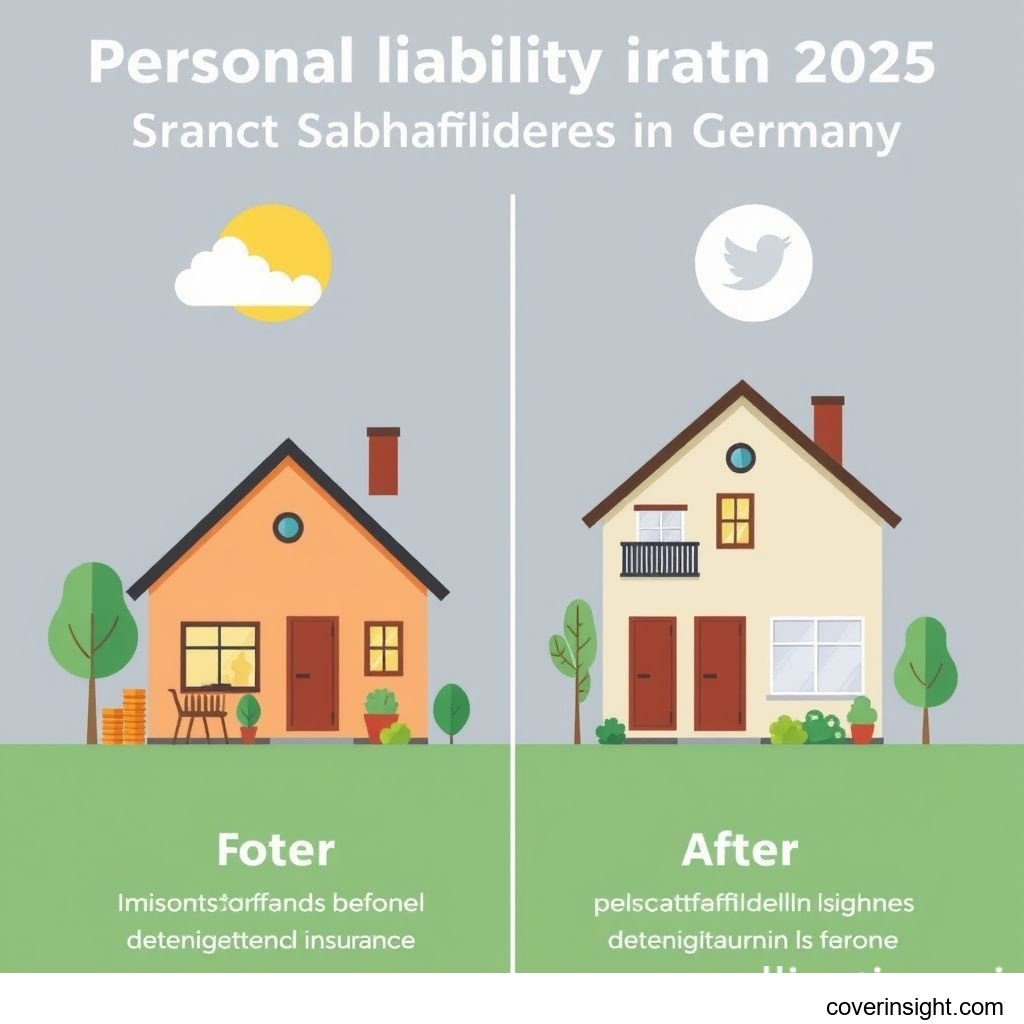Introduction
As 2025 dawns, the landscape for entrepreneurs in Germany continues to evolve, with remote work firmly established as a cornerstone for many new ventures. For Existenzgründer (start-up founders), setting up a home office offers unparalleled flexibility and cost efficiency. However, with this convenience comes a unique set of risks. A dedicated Homeoffice Versicherung is no longer a luxury but a crucial safeguard, protecting your professional assets and ensuring continuity should the unexpected occur. From equipment damage to liability issues arising from your home-based operations, understanding and securing the right coverage is paramount for a clever start in the German market.
Coverage Details
Navigating the world of insurance can feel like an intricate dance, but for your home office, knowing what’s covered – and what isn’t – is key to peace of mind.
What’s Included
A typical Homeoffice Versicherung for an Existenzgründer in Germany aims to bridge the gaps left by standard household insurance, which often doesn't cover commercially used equipment or business-related liabilities. Key inclusions usually cover:
-
Equipment Damage: Protection for your essential work tools like laptops, monitors, printers, and specialized machinery (e.g., 3D printers, design workstations) against perils such as fire, water damage, storm, theft, or even voltage fluctuations.
-
Business Interruption: Some policies offer coverage for income loss if your home office becomes unusable due due to an insured event, allowing you to bridge the financial gap while you recover.
-
Third-Party Liability (Business-Specific): While your private liability insurance covers personal incidents, a Homeoffice Versicherung can extend to cover damages caused to third parties in connection with your business activities within your home office. For instance, if a client visits your home office and slips on a wet floor, injuring themselves, this could be covered.
-
Data Recovery: Costs associated with recovering lost data due to hardware failure or other insured events might also be included.
Common Exclusions
While comprehensive, no insurance covers everything. Common exclusions often include:
-
Gross Negligence or Intentional Damage: Damages caused by your deliberate actions or severe carelessness are generally not covered. So, spilling coffee on your laptop while watching a movie might be covered, but deliberately smashing it won't be.
-
Wear and Tear: Normal aging, deterioration, or gradual breakdown of equipment is not typically insured.
-
Pre-existing Conditions: Damages or issues that existed before the policy began.
-
Cyber Risks (Dedicated): While data recovery might be included, comprehensive protection against cyberattacks, data breaches, or hacking usually requires a separate cyber insurance policy.
-
Damages Outside the Home Office: Your policy generally covers only the designated work area within your home. If you take your laptop to a café and it gets stolen, your home office policy might not cover it unless specifically extended.
Cost Analysis
The cost of Homeoffice Versicherung is a variable beast, but understanding its contributing factors can help you find a policy that fits your budget and needs.
Price Factors
When insurers calculate your premium, they "check it through its paces" (auf Herz und Nieren prüfen) using several criteria:
-
Value of Equipment: The higher the total value of your professional equipment, the higher your premium will likely be. Insurers assess the replacement cost of your assets.
-
Industry and Risk: Certain professions carry higher risks. A freelance writer might pay less than a small e-commerce business storing products, or a graphic designer with very expensive, specialized hardware.
-
Location: While less impactful for home offices than for physical storefronts, some geographical areas might have slightly different risk profiles (e.g., higher theft rates).
-
Coverage Extent: More comprehensive coverage (e.g., higher sum insured, broader perils covered, business interruption) naturally leads to higher premiums.
-
Deductible (Selbstbeteiligung): Opting for a higher deductible – the amount you pay out-of-pocket before insurance kicks in – can significantly lower your annual premium.
-
Provider: Different insurance companies have varying pricing structures and risk assessments.
Saving Tips
Even small savings can add up (Kleinvieh macht auch Mist), especially for a budding Existenzgründer. Here’s how you can trim down costs without compromising essential coverage:
-
Compare Offers: Don't just go with the first quote. Use online comparison portals or consult an independent insurance broker to compare policies from various providers. Look at policies tailored for small businesses and freelancers.
-
Choose a Sensible Deductible: As mentioned, a higher deductible reduces your premium. Ensure it's an amount you could comfortably afford in an emergency.
-
Bundle Policies: Some insurers offer discounts if you bundle your Homeoffice Versicherung with other policies, such as private liability or legal protection insurance. In 2023, the GDV – German Insurance Association reported a growing trend towards bundled policies for SMEs, offering up to 15% savings depending on the combination (Source: GDV - German Insurance Association (external-link-gdv)).
-
Regularly Review Your Coverage: As your business grows or changes, so do your insurance needs. Don't pay for coverage you no longer need, but also ensure you're not underinsured.
-
Implement Security Measures: Installing robust antivirus software, using strong passwords, and having physical security (e.g., good locks, an alarm system) can sometimes positively influence your premium, especially if your equipment is valuable.
FAQs
How much does Homeoffice Versicherung cost?
The cost varies significantly, typically ranging from €50 to €300 per year for basic coverage, depending on the value of your equipment, your specific business activities, and the level of coverage chosen. For more specialized or high-value setups, it can be higher.
What affects premiums?
Key factors include the total insured value of your equipment, the specific risks associated with your business (e.g., storing client data, frequent client visits), the chosen deductible, and the scope of coverage (e.g., inclusion of business interruption).
Is it mandatory?
No, Homeoffice Versicherung is not legally mandatory in Germany. However, it's highly recommended for Existenzgründer to protect their business assets and liability, as standard household insurance rarely covers commercial risks.
How to choose?
To choose the right policy, assess the total value of your home office equipment, understand the specific risks of your business activities, and compare offers from different providers. Focus on a policy that adequately covers your most critical assets and potential liability issues. Don't "can't see the forest for the trees" (den Wald vor lauter Bäumen nicht sehen) by getting bogged down in too many niche details, focus on core risks first. For comprehensive information and regulatory oversight, it's always wise to consult official sources like BaFin - Federal Financial Supervisory Authority (external-link-bafin).
Consequences of no coverage?
Without Homeoffice Versicherung, you bear the full financial risk of any damage, theft, or liability claims related to your home office. This could mean personally funding the replacement of expensive equipment, covering legal fees, or compensating clients for damages, potentially jeopardizing your nascent business before it even takes off. Consider Anna, a freelance graphic designer based in Munich, who founded her design studio from her apartment in 2024. Just six months in, a power surge during a thunderstorm fried her high-end design computer. Without her dedicated Homeoffice Versicherung, the cost of replacing the machine and lost work would have been crippling. Luckily, her policy, tailored for Existenzgründer, covered the damage promptly, allowing her to get back to business without a major financial hit. This highlights the vital safety net such coverage provides.
As someone living in DE and having observed the dynamic growth of the startup scene, I've seen firsthand how critical it is for Existenzgründer to manage risks proactively. Based on my experience, many new entrepreneurs, in their zeal to get started, often overlook the foundational safeguards. A small investment in Homeoffice Versicherung is not an expense but a strategic move, providing the resilience needed to weather unexpected storms. It allows founders to focus on innovation and growth, rather than being constantly worried about potential financial setbacks from a damaged laptop or an unforeseen liability claim. For broader insights into global insurance trends and local specifics, be sure to explore various Insurance Resources Global and consult local expertise via DE Insurance Home. The German market, as illustrated by a 2023 report from the Federal Statistical Office (Destatis) showing over 35% of German businesses utilizing remote work models, underscores the continued relevance and necessity of tailored home office protection.








Comments